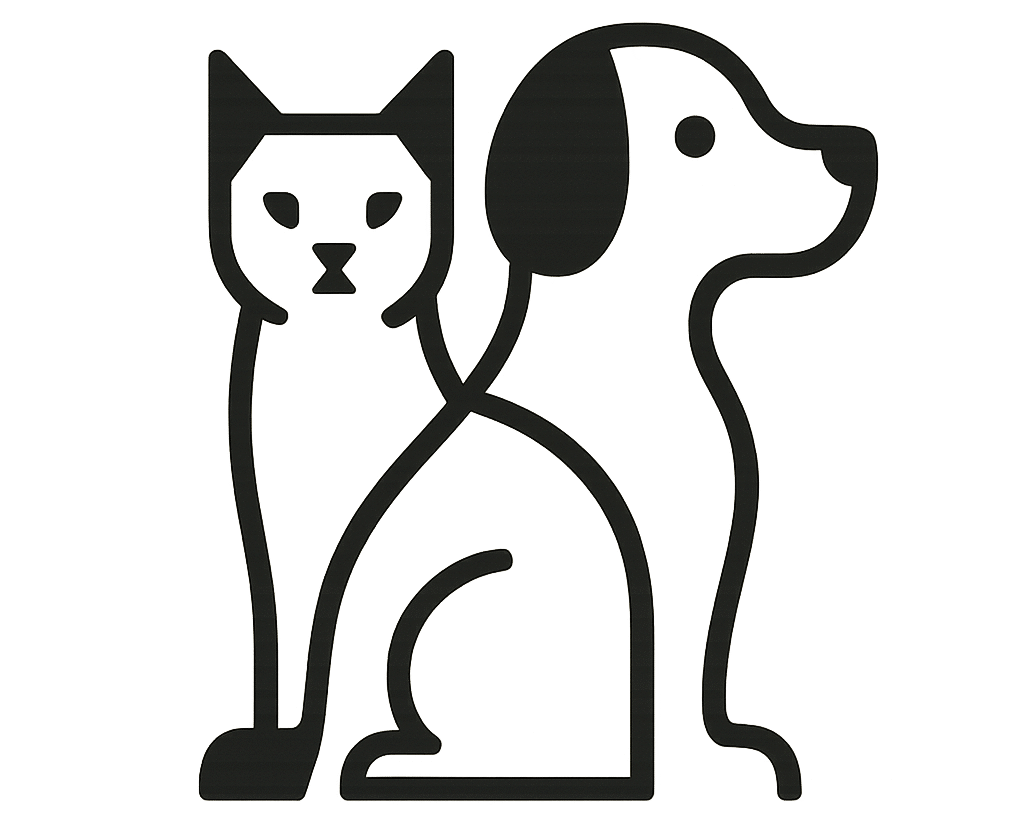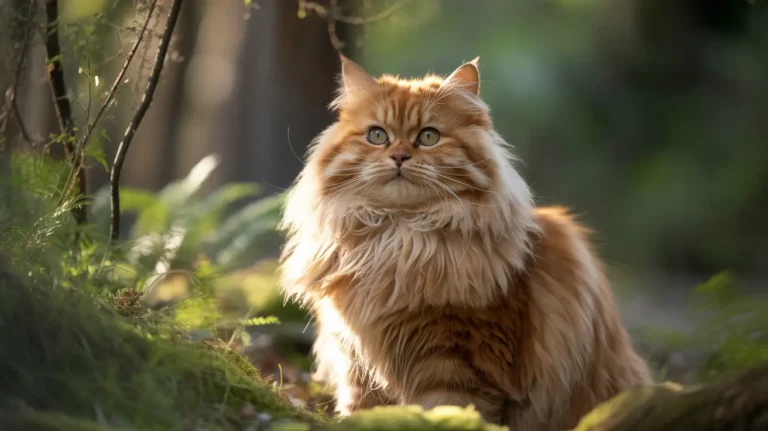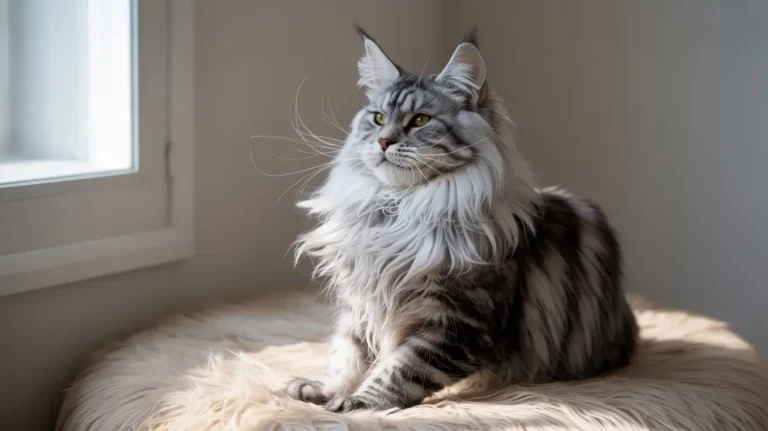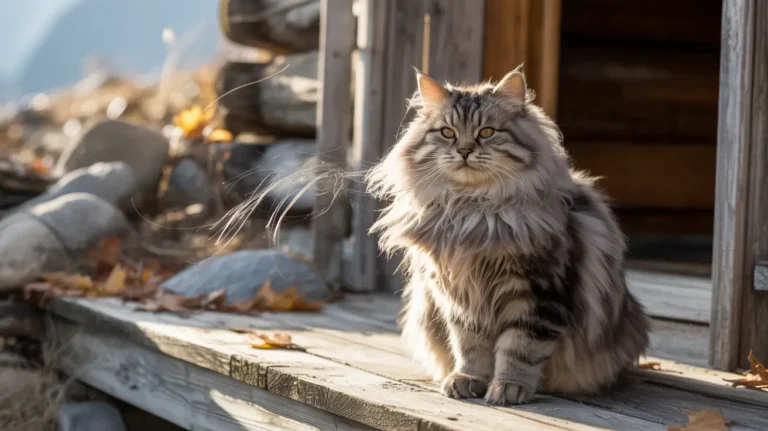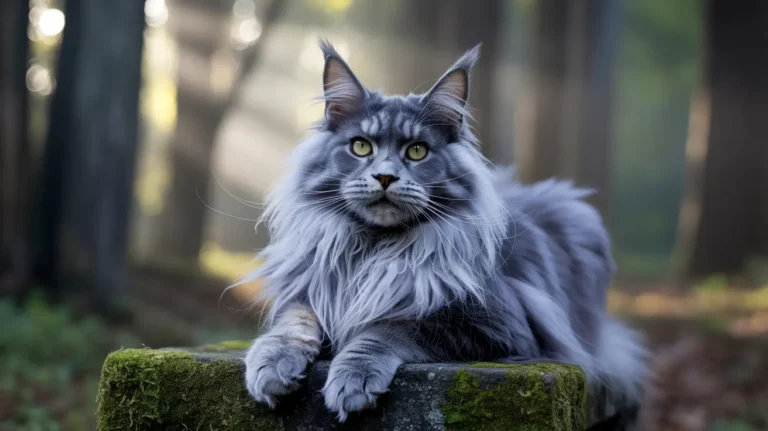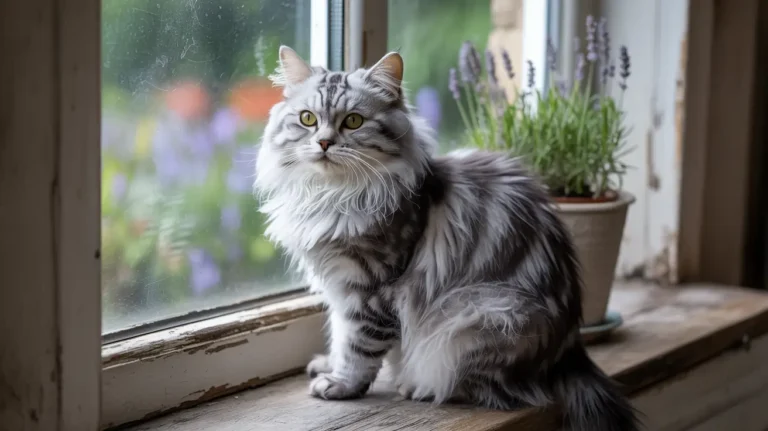Pros and Cons of Maine Coon Cats: Are They Right for You?
Maine Coon cats, often called the “gentle giants” of the feline world, are known for their striking appearance and loving, friendly nature. These majestic cats can weigh anywhere from 10 to 25 pounds, making them one of the largest domestic cat breeds.
But owning one is not just about their impressive size; it’s about their temperament, intelligence, and unique needs. This article will walk you through the pros and cons of having a Maine Coon cat, helping you decide if this breed is right for you.
Pros of Maine Coon Cats
Maine Coon cats are beloved for more than just their stunning looks—they offer a unique blend of personality traits that make them stand out from other breeds. If you’re considering bringing one into your home, here are some of the top advantages you can expect from this gentle giant:
1. Friendly and Sociable Nature
One of the most well-loved traits of the Maine Coon is its friendly and sociable personality. Unlike many cats, which may be more solitary or aloof, Maine Coons are known to be affectionate and people-oriented. They get along with children, other pets, and strangers.
Their social nature makes them ideal pets for families or those who already have other animals. They also follow their owners around the house like loyal companions. Maine Coons enjoy being part of the family, and they are likely to greet you at the door when you come home.
Their laid-back and friendly attitude ensures they’ll be happy in most environments.
2. Highly Intelligent and Trainable
Maine Coons are incredibly intelligent cats. They can learn new tricks and commands, making them one of the few cat breeds that can be trained to fetch, sit, or even walk on a leash.
Their curiosity means they enjoy exploring new environments and solving puzzles, which makes them more engaging and interactive compared to other breeds.
Their intelligence also makes litter training easy, as they usually learn quickly and adapt well. If you enjoy providing mentally stimulating activities for your pets, a Maine Coon will thrive with that kind of interaction.
3. Playful Yet Gentle
Another wonderful aspect of the Maine Coon is its playful yet gentle nature. While they retain their playful energy well into adulthood, they are also remarkably patient and gentle, especially with children. They love interactive play, like chasing toys or playing tug-of-war, but are rarely aggressive.
Their calm demeanor and playful nature make them great companions for kids. They don’t tend to scratch or bite aggressively, making them a perfect choice for homes with younger children.
4. Low Aggression, High Affection
Maine Coons are generally known for their low aggression levels. They do not tend to scratch or bite, even if startled, making them safer to have around young children and other pets.
Their affectionate nature ensures they enjoy cuddling with their owners, but they are not clingy, and they respect your space. These cats are particularly known for following you around and seeking your attention without being overbearing.
Whether you’re watching TV or working, they’ll likely be right there beside you, ready to relax and share your company.
5. Stunning Appearance
Maine Coon cats are undeniably beautiful. Their large size, tufted ears, bushy tails, and long, flowing fur make them one of the most visually striking cat breeds. They have a rugged look, but their soft, silky coats are luxurious to the touch.
Their fur comes in almost every color and pattern, adding to their uniqueness. Whether you prefer solid colors or tabby stripes, there’s a Maine Coon that matches your aesthetic taste. Their majestic appearance makes them stand out in any room.
6. Adaptable to Different Environments
Maine Coons are highly adaptable and can thrive in various living environments. Whether you live in a large house or a small apartment, they will settle in as long as their basic needs are met. These cats are not particularly high-maintenance, but they do enjoy having space to roam.
In households with other pets, Maine Coons generally get along well, even with dogs. They have an easygoing personality that helps them adapt to new situations. As long as they have time to interact and are properly cared for, they are happy in most environments.
Cons of Maine Coon Cats
As wonderful as Maine Coon cats are, they do come with a few challenges that potential owners should be aware of. Understanding the downsides is just as important as knowing the benefits, so you can make a fully informed decision. Here are some of the key cons to consider before bringing one home:
1. High Grooming Needs
While Maine Coon cats are known for their long, beautiful fur, this feature comes with a downside: grooming. Their dense, thick coats are prone to matting, which means regular grooming is essential.
If not brushed often, their fur can easily become tangled, especially during shedding season. It’s recommended to brush your Maine Coon at least 2–3 times a week. Some Maine Coons shed more heavily, requiring even more frequent grooming.
Owners must be committed to keeping up with the grooming to maintain the health and beauty of their cat’s coat.
2. Bigger Size, Bigger Responsibilities
Maine Coons’ large size comes with extra responsibilities. Not only do they eat more food than smaller breeds, but their larger size requires bigger carriers, more spacious litter boxes, and larger beds. Furniture and accessories may also need to be bigger or sturdier to accommodate them.
Their size also means they require more attention in terms of healthcare. Larger cats often face specific health concerns, and regular vet visits are essential. As a result, owning a Maine Coon can be more costly than having a smaller cat.
3. Health Concerns
Like many purebred cats, Maine Coons are prone to certain health issues. One of the most common health problems they face is Hypertrophic Cardiomyopathy (HCM), a heart condition that can lead to serious complications. Hip dysplasia is another concern in some lines, where the hip joint does not develop properly.
While these health issues are not guaranteed, prospective owners should be aware of them and budget for potential vet visits and screenings. Choosing a reputable breeder who tests for genetic conditions can help reduce the likelihood of these problems, but it’s important to be prepared for potential costs.
4. Cost of Ownership
Owning a Maine Coon can be expensive. Aside from the initial purchase price (which can range from $800 to $2,000 depending on the breeder), you’ll also need to factor in regular expenses like food, grooming tools, and vet visits.
Their larger size means they consume more food than smaller cats, so the cost of feeding them will be higher.
If your Maine Coon requires any specialized care due to health issues, those costs can quickly add up. Overall, owning a Maine Coon is a long-term investment that requires financial commitment.
5. They Need Attention and Interaction
Maine Coons are social animals that thrive on attention and interaction. They are not the type of cat that can be left alone for long periods. If you are often away from home, a Maine Coon may become bored or even develop separation anxiety.
While they are independent in some ways, they still crave companionship. If left alone too much, they may act out or become lethargic. This is something to consider before adopting a Maine Coon if you have a busy lifestyle.
Should You Get a Maine Coon?
Deciding to bring a Maine Coon into your home is a big commitment—one that comes with both joys and responsibilities. While their affectionate nature and majestic appearance are hard to resist, it’s important to make sure they’re a good match for your lifestyle.
Here’s a quick look at who they’re best suited for—and who might want to consider another breed:
Best For:
Maine Coons are best suited for families, pet owners who want a dog-like cat, and those who have plenty of time to spend with their pet. If you’re looking for a sociable, playful, and gentle companion, the Maine Coon could be the perfect choice for you.
They are ideal for homes with children or other pets and those who can commit to regular grooming and care. Their adaptable nature makes them great in various living situations, from apartments to large homes.
Not Ideal For:
Maine Coons may not be the best choice for people who are looking for a low-maintenance cat. Their grooming needs and size require a commitment of time and resources. Additionally, they need attention and interaction, so they’re not the best choice for those who are often away from home.
Their potential health issues and the costs associated with owning a Maine Coon may be deterrents for some. If you’re not prepared for the responsibility, another breed may be a better fit.
Final Thoughts on the Pros and Cons of Maine Coon Cats
Owning a Maine Coon can be a truly rewarding experience, but like any pet, they come with their own set of needs. Their loving nature, high intelligence, and playful spirit make them one of the most cherished cat breeds worldwide. But it’s equally important to recognize the time, grooming, and financial care they require.
If you’re someone who enjoys spending quality time with pets and can commit to regular grooming and interaction, then the Maine Coon’s pros will far outweigh the cons. Their companionship is often compared to that of a dog, making them ideal for families, children, and even multi-pet households.
So now that you know the real pros and cons of Maine Coon cats, it’s easier to decide if this gentle giant matches your lifestyle. If you’re ready to welcome a loyal, fluffy companion into your life, a Maine Coon might just be the perfect fit for your home.
